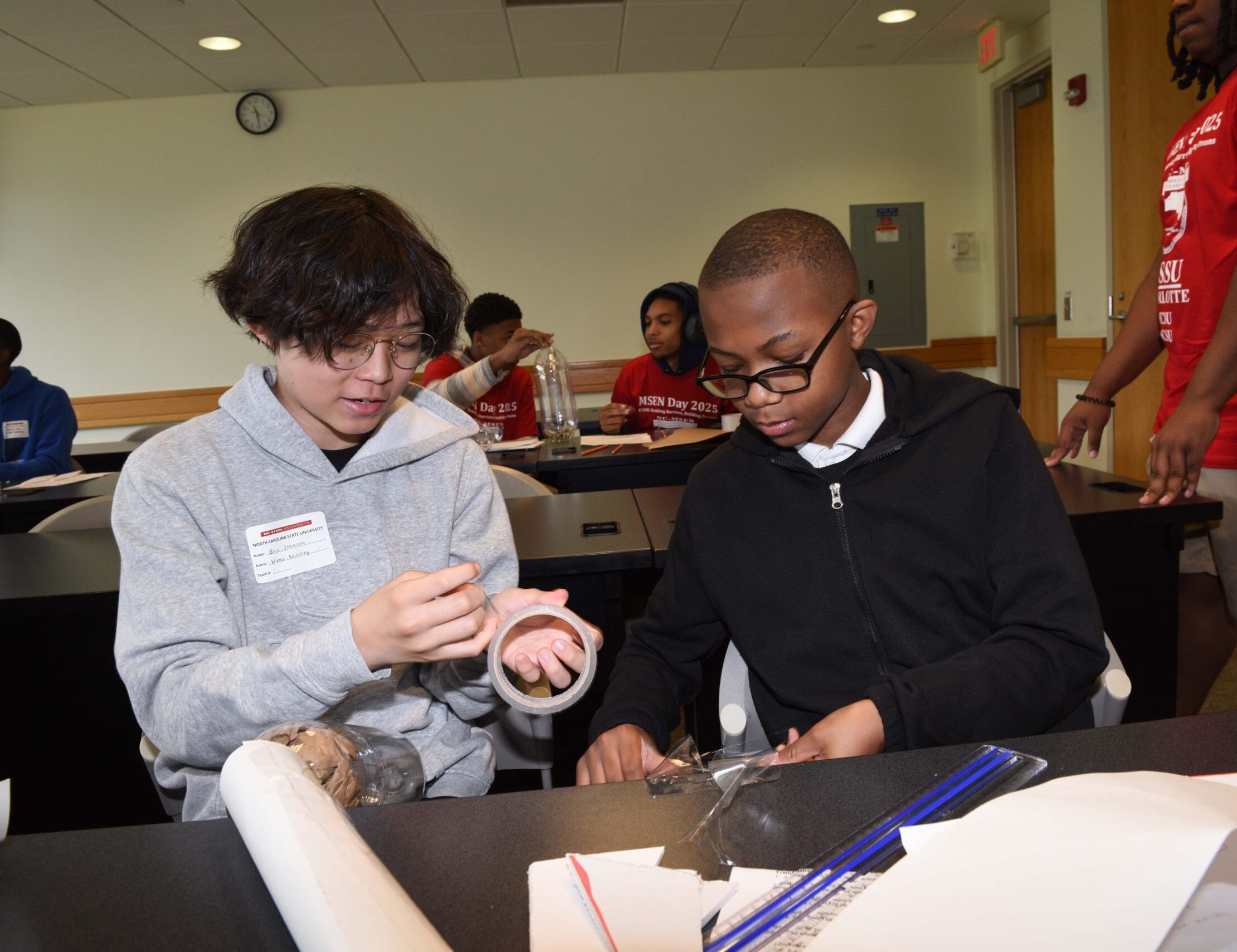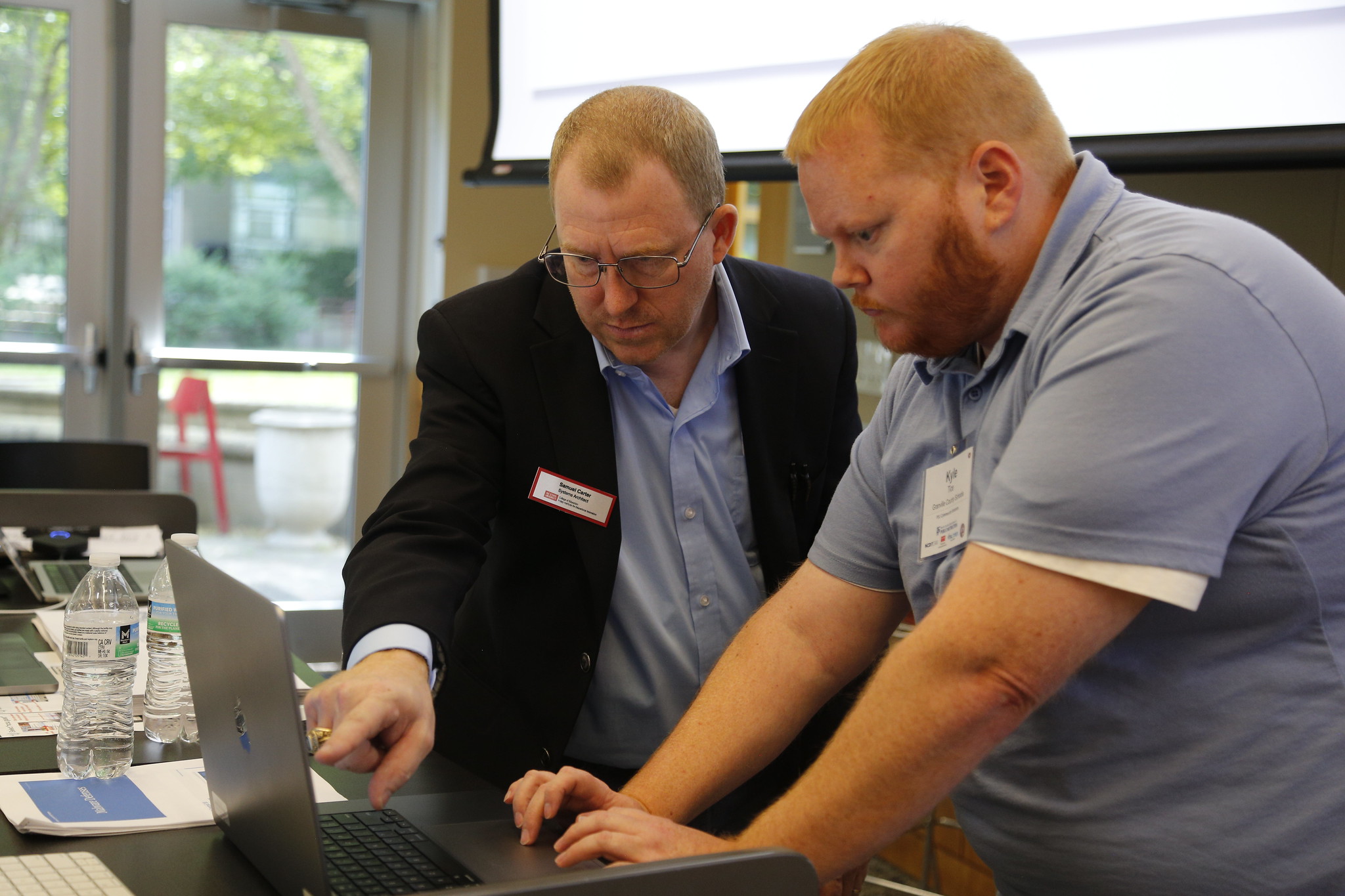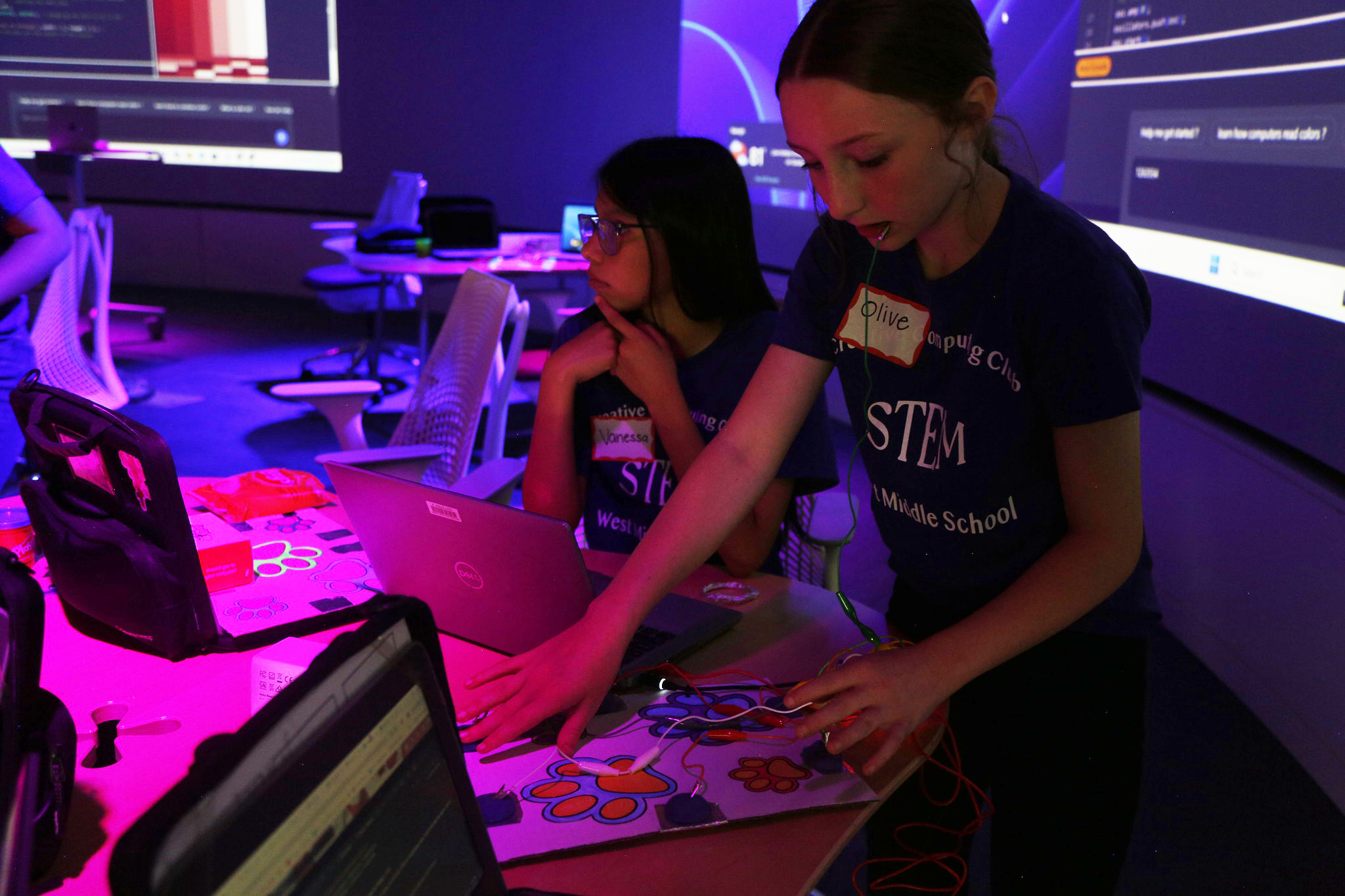Friday Institute, Center for Educational Informatics and EngageAI Institute Collaborate to Advance AI in Education
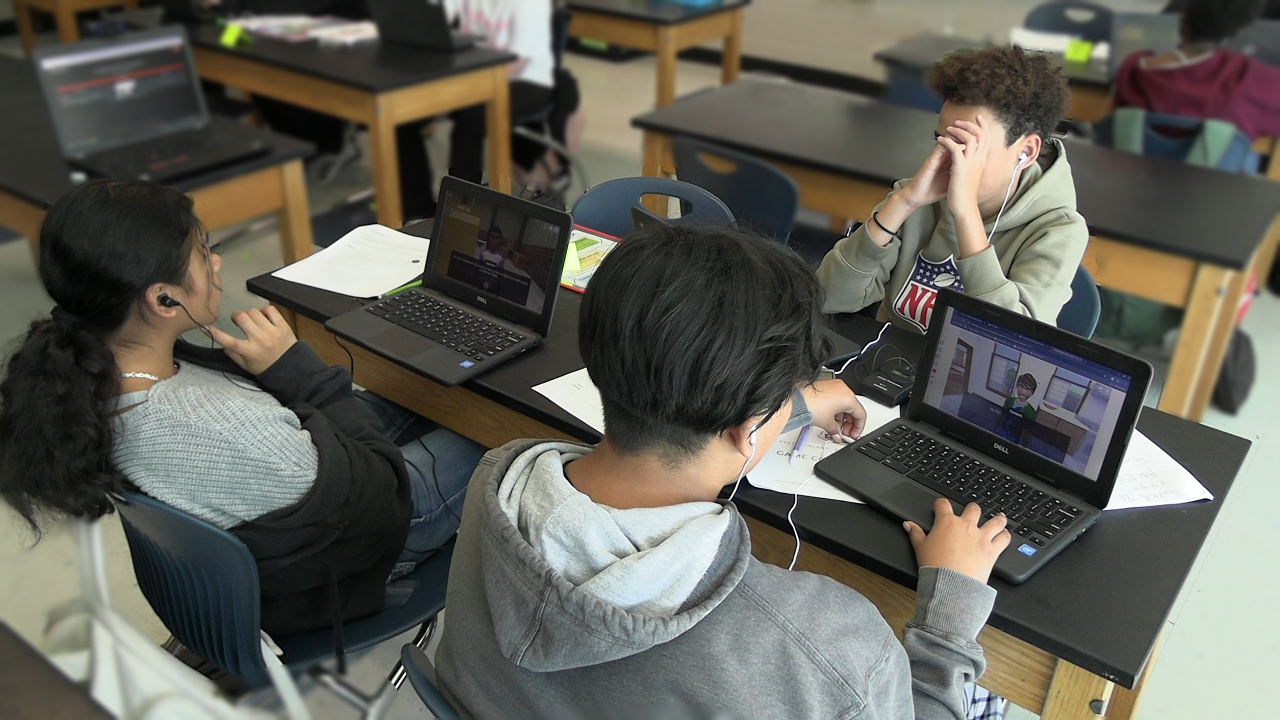
By bridging immersive storytelling, real-time adaptive support and authentic science inquiry, the game-based platform EcoJourneys is engaging students in meaningful curiosity-driven learning experiences. As research and development continues, this project serves as a model for the collaborative design of innovative, meaningful artificial intelligence (AI) solutions in K-12 education that adapt to learners’ needs and prepare them for an AI-driven world.
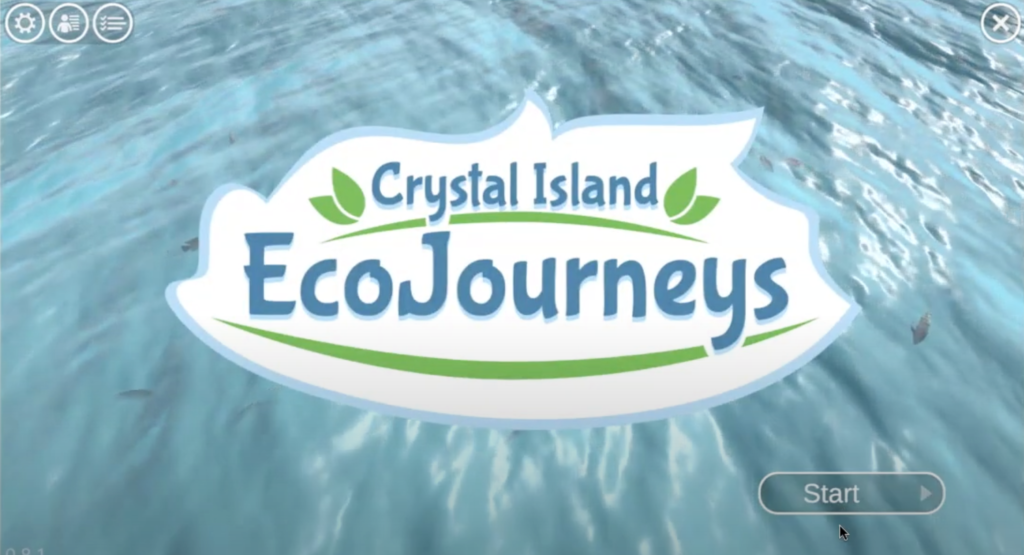
In collaboration with NC State University’s Center for Educational Informatics (CEI) and the NSF-funded EngageAI Institute; both led by James Lester, Goodnight Distinguished University Professor in artificial intelligence and machine learning and CEI director; the Friday Institute for Educational Innovation is participating in the development of game-based learning environments using AI large language models (LLMs) that provide responsive adaptations to learners’ needs during gameplay. This collaborative effort to develop EcoJourneys highlights the transformative potential of AI-enhanced serious game-based learning in today’s classrooms.
“We are delighted to partner with the Friday Institute in this very exciting work to create AI-enabled narrative-centered learning environments that significantly improve students’ learning effectiveness and their engagement with science,” said Lester.
Researchers at the Friday Institute have been leading the conversation about AI in education policies and practices for a while, but they are also on the forefront of cutting edge research in AI-supported learning technologies.
Krista Glazewski, Friday Institute executive director and NC State College of Education associate dean for translational research, co-leads the education research team along with co-principal investigator Cindy Hmelo-Silver, who is a distinguished professor and associate dean for research and development at Indiana University.
“The collaboration between the Friday Institute, the EngageAI Institute and the Center for Educational Informatics is a unique one in several ways,” said Glazewski. “Much of our AI-related work at the Friday Institute is focused on policy and professional development, but this particular initiative centers on building AI-integrated systems that support deep collaborative inquiry in classrooms. We are able to facilitate research that enables iterative cycles of development grounded in classroom realities. Our role ensures that insights from research, policy and practice inform the designs of AI-enabled learning systems—and that those systems, in turn, generate evidence that shapes AI innovation and adoption at scale.”
Bringing EcoJourneys to North Carolina Classrooms
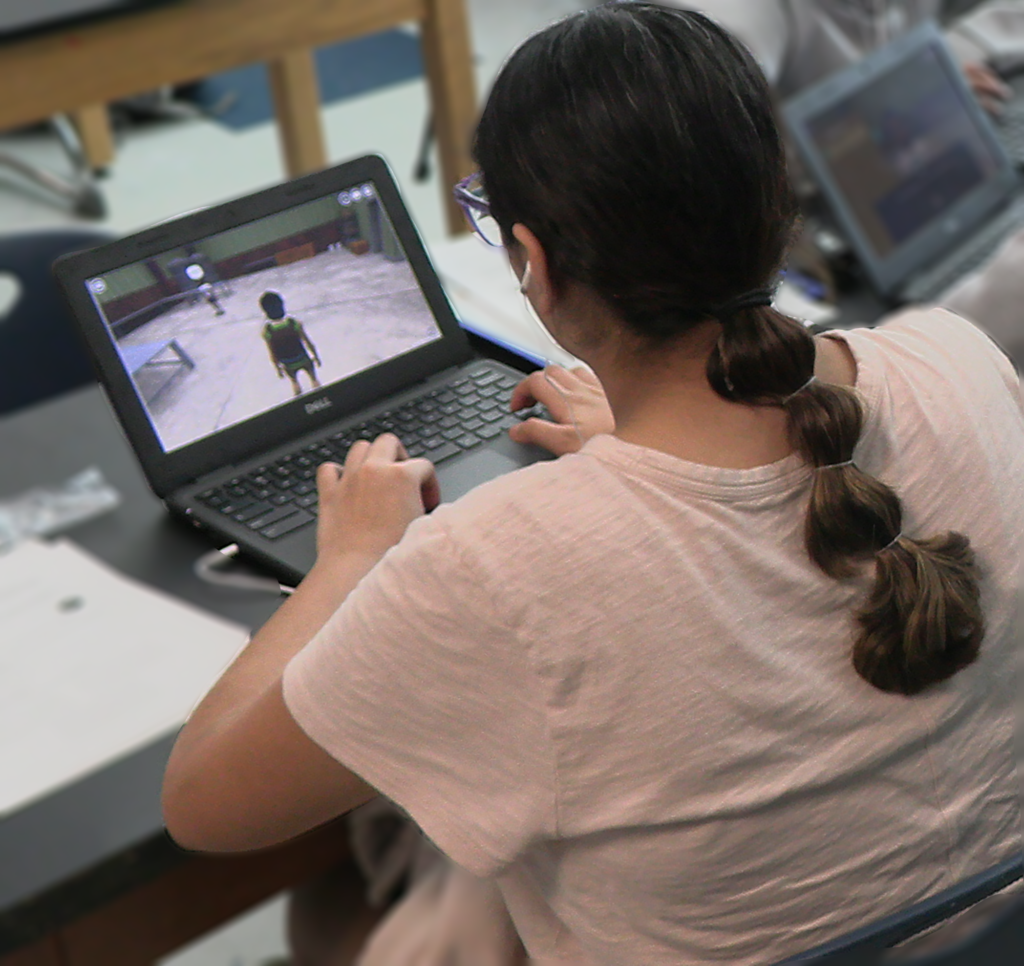
A focus of this cross-institutional effort is the development of AI-enhanced game-based learning environments centered around problem solving embedded in storytelling. One such project is the narrative-centered science problem-solving game EcoJourneys.
The team recently had the opportunity to bring EcoJourneys to two North Carolina middle schools in the Outer Banks: First Flight Middle School and Manteo Middle School. The iterative nature of the EcoJourneys development is based on data collected during game play in actual classrooms, including feedback from teachers and students. This process of development, classroom implementation, followed by redesign and improvements to the game, is at the heart of what the EcoJourneys project is all about—learning how AI integration into game-based learning can improve science education.
For example, during the 2024-2025 school year, EcoJourneys increased adaptability and responsiveness to student learning by adding large language model (LLM) capability into the game. Although AI has been integrated into EcoJourneys in previous years, the addition of the LLM this year allowed for evaluation of individual student and group activity, providing tailored feedback. In addition, improvements were made to a teacher orchestration assistant (OA) app that provided real-time alerts and data to the teacher while students played the game.
“The Friday Institute has definitely given my students a meaningful chance to learn.”
– Dashia Sealock, Middle School Teacher
During the game, students took on the role of scientists trying to solve a problem with tilapia on a fictional island in the Philippines. They moved around the island, talked to NPCs (non-player characters) and collected data to figure out why the tilapia were getting sick. Students learned about ecosystem concepts and what fish need to survive.
First Flight teacher Marianna McMains had the opportunity to implement the game in her science classroom.
“When I first heard about this opportunity, I was super excited because it’s so different from what we usually do,” said McMains. “Teachers don’t always have a lot of extra time to find enrichment activities for students, so this was a unique opportunity. The students were always excited. They’d ask, ‘Are we playing the game today?’ They love that kind of gameplay when they’re learning something new. It keeps them engaged.”
One of the unique aspects of this particular implementation of EcoJourneys in the Outer Banks was how learners connected with their own aquatic environment on the coast while navigating the game.
“We’ve talked about things like brackish water, and the students are like, ‘Oh yeah, the sound!’ Then I’ll ask them, ‘What do you think about this particular species?’ and it really hits home,” said Dashia Sealock, a seventh grade teacher at Manteo Middle School. “They’ve seen green water. They’ve noticed when the sound is cloudy. These real-world scenarios really connect with them.”
AI in Education and the Friday Institute
Through this cross-institutional collaboration with the EngageAI Institute and CEI, the Friday Institute is expanding its cutting-edge work on AI in education by participating in the development of AI-enhanced tools. This work exemplifies the Friday Institute’s unique mission to bring innovation into North Carolina classrooms by bridging the gap between research and real-world classroom practice. Not only does research impact practice, but the practice of teachers and students directly impacts the research.
“This program is my first true experience with AI-driven learning, and I’ve been impressed,” said Sealock. “The students are developing critical thinking skills throughout the process, especially through collaboration. I love working with others, and this program has been a refreshing opportunity to network and make new connections. The Friday Institute has definitely given my students a meaningful chance to learn, while also contributing valuable data to the researchers involved.”
- Learn more about the Ambitious Learning Practices team
- Categories:
